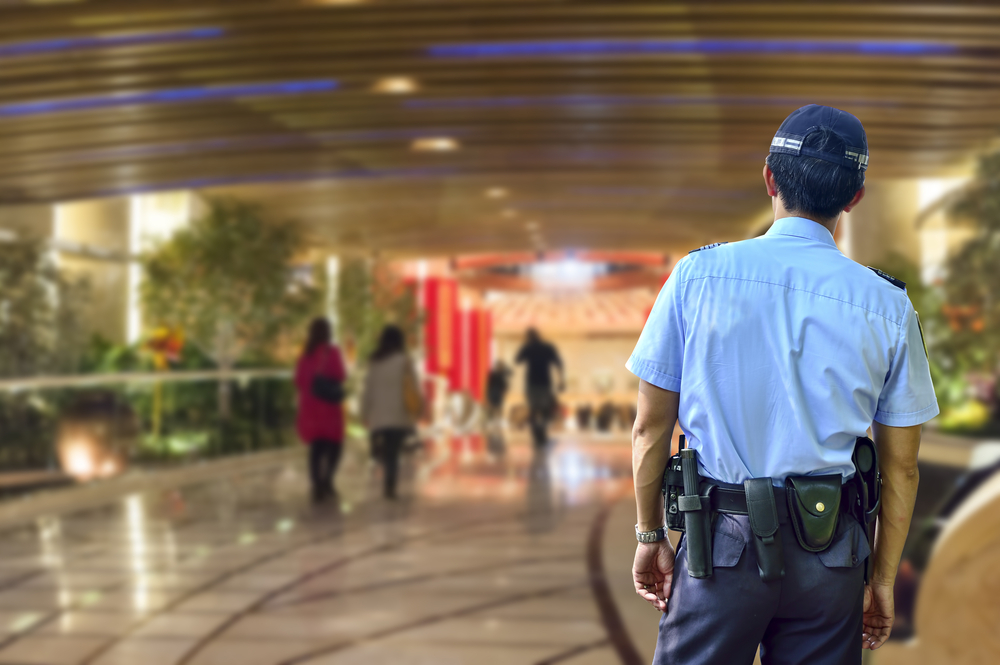Lawsuit Against Rodeway Inn Hotel Serves as Reminder to Hotel Industry of Importance of Premises Safety
Lawsuit Against Rodeway Inn Hotel Serves as Reminder to Hotel Industry of Importance of Premises Safety
A newly-filed negligent security lawsuit in Miami-Dade County — NN and Ma vs. O.J.A. Development Company, Supra Security, Inc. and Travon Smith – raises a series of liability-related issues amidst a backdrop of especially egregious facts. In the lawsuit, Plaintiffs allege that they were brutally attacked while staying as guests at the Rodeway Inn Hotel in Coral Gables, Miami-Dade County. Specifically, according to the Complaint, M.A., a hotel guest, was in his hotel room when he heard a knock at the door and opened it, assuming it was his wife, N.N., who had recently left to get towels. Instead, it was a homeless assailant who punched him in the face, forced his way into the room and began strangling him. While the assailant continued to strangle M.A., N.N. returned to the room. The assailant then chased N.N. into the hallway, where he brutally beat and strangled her.
Following the incident, Plaintiff sued the hotel’s owner, O.J.A. Development, and the hotel’s security company, Supra Security, for several causes of action including negligence and negligent infliction of emotional distress. The lawsuit alleges a series of acts and omissions by both defendants in purportedly failing to provide adequate security at the hotel.
The lawsuit presents a question common to all business owners in negligent security cases – i.e., was the incident foreseeable and, if so, did the Rodeway Inn Hotel maintain an adequate level of security to deter and prevent this type of incident? In litigating its way to the answer, O.J.A. will have to air its dirty laundry. Foreseeability will turn, in part, on the number of criminal incidents occurring at the hotel in the years preceding the subject incident. In other words, the question of whether the hotel should have expected this type of incident to occur will be answered by evidence of the hotel’s criminal history relative to the subject incident. The issue of foreseeability will also require inquiry into criminal activity in the surrounding area. If the Complaint is accurate in its allegation that the hotel was located in an area where crime statistics, including violent crime, had dramatically increased in recent years, O.J.A. will be hard-pressed to dispute that the hotel should have foreseen the incident.
Equally as integral to the liability question is Rodeway Inn Hotel’s process for screening hotel guests and Supra Security’s reaction upon first learning of the incident. As to the former, the reasonable expectation is that a hotel will screen visitors to confirm their status as a registered guest or an invitee of a registered guest. The Complaint alleges circumstances to the contrary – i.e., the assailant simply entered the hotel without any interruption whatsoever by hotel staff. As to the latter, the fact that the hotel was equipped with private security is certainly favorable, but it completes only half of the safety equation. The other half is defined by the security company’s acts and omissions in response to the incident. It should not come as a surprise that a jury will expect Supra Security to have immediately intervened to quell the assault and apprehend the assailant. While a jury may give some leeway to response time, they will expect security to have acted quickly upon arrival to quash any continuing threat. Assuming as true the Complaint’s allegations that security essentially acted as a sideline spectator throughout the assault, both O.J.A. and Supra Security face a serious hurdle in arguing that they exercised reasonable care.
For example, according to the Complaint, security’s failure to intervene in the attack on N.N. allegedly led to the assailant’s forcing N.N. to another floor by elevator where he sexually assaulted her. Arguably, the sexual assault would not have occurred if security timely intervened to prevent the assailant from confining N.N. to the elevator.
In defending against the allegations, O.J.A. and Supra Security will likely allege the comparative fault of M.A. in opening the door for the assailant. They may also argue that M.A. failed to intervene in the assault against N.N. to prevent the assailant from forcing N.N. into the elevator. However, the latter argument may be difficult to sell to a jury who may be thinking: isn’t that security’s job?
Businesses residing in a neighborhood with high incidents of crime, or a recent history of criminal incidents, should audit their security measures including the private security whom they employ. Confirming that security is up to snuff not only protects patrons but also lessens the likelihood of unwanted liability.










